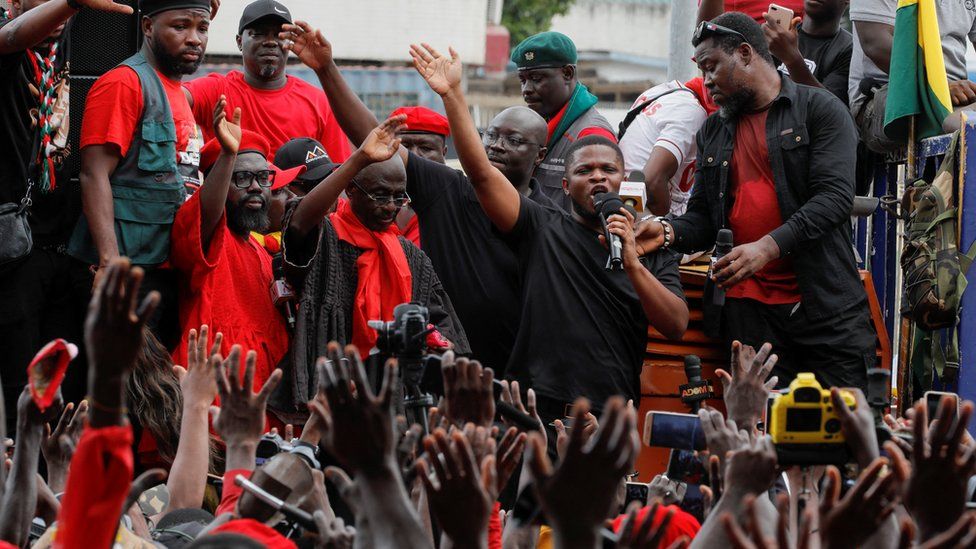-

-
-
Loading

Loading

Ghana, once celebrated as an African economic success story, is currently facing an unprecedented financial crisis. Hundreds of protestors recently took to the streets of Accra, the capital city, demanding the resignation of the governor of the Bank of Ghana and his deputies. The protestors, led by the opposition National Democratic Congress, accused the bank of illegally printing money to lend to the government, resulting in currency depreciation and high inflation. The opposition also criticized the bank for excessive spending on travel and a new office building. The central bank denies any mismanagement and claims that the losses were due to a fluctuating exchange rate and non-payment of loans by state institutions. However, the opposition argues that the bank's governors have contributed to rampant inflation and economic hardship through their actions. Ghana is currently experiencing its worst economic crisis in a generation, with a record high inflation rate and downgrades from credit rating agencies. The government has defaulted on a significant portion of its debt payments and had to seek assistance from the International Monetary Fund (IMF). To secure a $3 billion bailout from the IMF, the government had to agree to reduce debt interest payments and engage in debt restructuring. However, some creditors refused to participate in the restructuring program. In August, the Bank of Ghana announced that the government would not repay half of the $700 million it had borrowed from the bank. Instead, the funds would be used for debt restructuring, and no interest would be paid. Experts argue that this abuse of the bank's lender of last resort status and violation of its rules undermine its supervisory authority over commercial banks and erode confidence in Ghana's financial system. The central bank's loss has significant consequences for the economy, including the erosion of individuals' purchasing power and an increase in poverty. A World Bank report estimated that 850,000 Ghanaians have fallen into poverty due to high inflation. The bank is also under scrutiny from the IMF, as further bailouts may be refused under the terms of the loan agreement. Overall, Ghana's financial crisis highlights the need for improved governance and fiscal responsibility to address the nation's economic challenges.